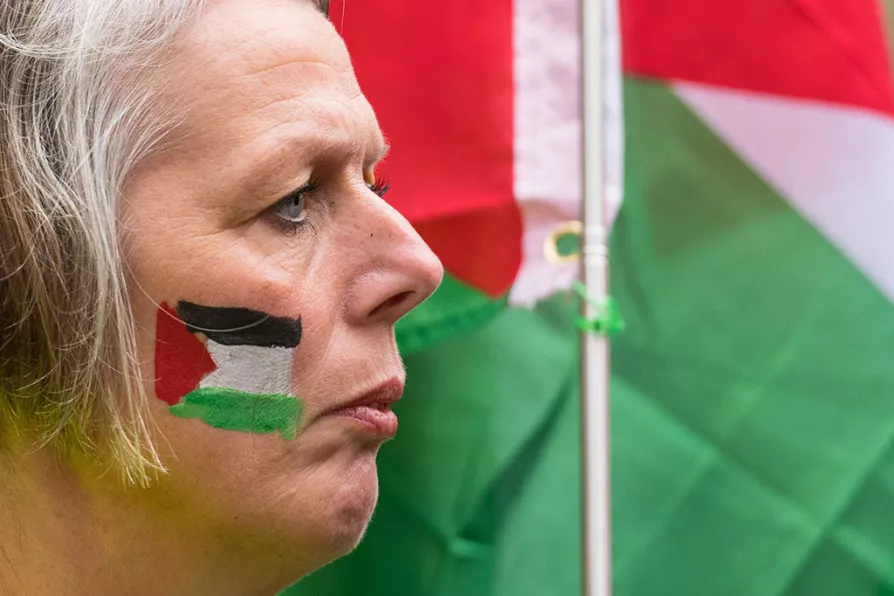Speakers in Berlin traced how Germany’s rearmament, US-led violence abroad and the repression of solidarity at home are converging in a dangerous drive toward war. BEN CHACKO reports

 Louise Regan at a Palestine solidarity demo
Louise Regan at a Palestine solidarity demo
THE trade union movement in the UK is made up of around 5.5 million members. At its annual congress in September 2020 the TUC passed a motion on the subject of solidarity with Palestine. The motion submitted by Unite was widely supported across the trade union movement and called for congress to:
Fully support and play an active role in the Palestine Solidarity Campaign’s actions to build a broad coalition against the proposed Israeli annexation and to urge all affiliates to do likewise.
Send a letter to the Prime Minister demanding that Britain take firm and decisive measures, including sanctions, to ensure that Israel stops or reverses the illegal annexation, ends the occupation of the West Bank and blockade of Gaza and respects the right of Palestinian refugees to return.

The people of Palestine need our solidarity in actions not words – trade unionists must give them our full support in their darkest hour, writes DANIEL KEBEDE

Thousands fill London streets on 77th anniversary of catastrophe as the Co-op supermarket AGM votes to stop selling Israeli goods












